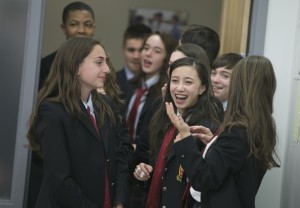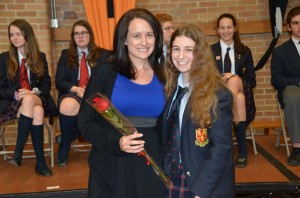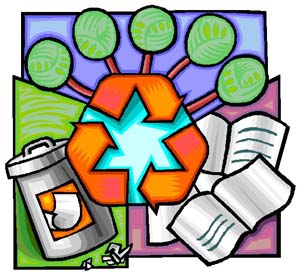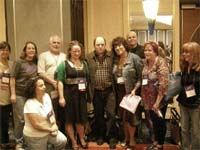 Last week, Quebec Education Minister Yves Bolduc was forced to comment on a comprehensive report from the University of Laval that was very critical of a decade of significant educational reform here in Quebec. Quebec is not alone in attempting changes in educational approaches; these have been implemented across most of the western world in recent years. All nations have attempted to shift away from old-world priorities: memorization, drill & kill (interest), and a “one-size fits all” mentality. Today we stress more relevant 21st century skills—the nurturing of creativity, collaboration, problem solving, IT integration and resilience—so students can better navigate a rapidly changing world.
Last week, Quebec Education Minister Yves Bolduc was forced to comment on a comprehensive report from the University of Laval that was very critical of a decade of significant educational reform here in Quebec. Quebec is not alone in attempting changes in educational approaches; these have been implemented across most of the western world in recent years. All nations have attempted to shift away from old-world priorities: memorization, drill & kill (interest), and a “one-size fits all” mentality. Today we stress more relevant 21st century skills—the nurturing of creativity, collaboration, problem solving, IT integration and resilience—so students can better navigate a rapidly changing world.
Unfortunately, after 10 years the evidence on Quebec student performance has not been impressive. In fact, in mathematics and mother-tongue French, scores have slipped, while Quebec continues to wrestle with one of the highest high school dropout rates in North America—still entrenched at a rather shocking 25%—and even higher in some regions.
Although there are clearly some serious issues in Quebec, we need not see ourselves in the same light at LCC. Here we enrich and aim higher than base standards, and that approach has actually served us very well over the past decade. Our academic results are very solid, and I continue to be impressed by both faculty innovation and student achievement.
So let me present my LCC Top Ten “Joyde” List. What’s Joyde? Well, it’s my own word. Joyde is the intersection of “joy” and “pride”. Despite the negative media portrayal of student performance, I believe there is still plenty of room for joy in learning—and pride still matters a great deal at LCC. I wander our halls a lot and see activities and initiatives from K-12 that reflect genuine Joyde.
As a testimony to the much-loved Top Ten List that is so popular in our culture, in no particular order, here are 10 examples that is alive and well at LCC:
1. Kindergarten
This programme is a serious “cuteathon”. Our class sizes are very small—and by November the flexible and malleable minds of our youngest students allow them to already understand and express themselves in French in a surprisingly competent way.
2. Faculty Growth
For many years behind the scenes our teachers have worked hard at developing and enhancing specific aspects of their teaching. This takes time, effort, thoughtful reflection and collaboration. Most recently this has been further enhanced by the introduction of the IB Diploma and IB training seminars, as well as all-faculty PLC mornings for teacher collaboration. Many impressive achievements have emerged from focused teacher reflection and collaboration.
3. EF – Executive Functioning & Positive Mindset
Several years ago as a result of some Faculty Growth initiatives, a group of Middle School teachers worked to develop a program in EF skill development that we could reinforce throughout Middle School and beyond. It begins with an understanding of “metacognition” —how to learn best—and development of a positive mindset so students can be resilient and overcome obstacles in learning. Now, twice a year an EF Report Card goes home to Middle School students/parents. This is very helpful in making learning more meaningful.
4. Committed & Service-oriented Staff
Non-teaching staff are key to student success at LCC. We try hard to hire for attitude in addition to skills. From our front reception to our nurses, part-time coaches, to maintenance and security staff, these are positive and committed people who make a positive difference in students’ lives every day. Whether clearing the snow, welcoming students when late, helping to coordinate pizza lunches, mopping up bloody noses, and repairing our facilities, these roles are critical for success in our learning community.
5. STEM Engagement & IT Integration
STEM stands for Science, Technology, Engineering, & Math. It’s an area where North Americans fear we are falling behind compared to challengers in Asia and parts of Europe. LCC Teachers respond with cool science labs, robotics, real-world math initiatives, Grade 9 CSI day, IB science & math. Our teachers are energetic and creative. From the Junior School Science Exploratorium to the Senior Schools classes, labs, and workrooms, our talented science, math & IT teachers do not tolerate anything less than excellence in STEM.
6. Internationalism & Global Perspectives
As a Round Square & IB school, we are firmly committed to opening students’ eyes to the world and helping them embrace “the other”, people culturally different from themselves. Whether it’s specific courses, international exchanges, international students, service projects, Duke of Edinburgh leadership activities, or the connectivity of our digitally-connected classrooms, LCC students have more meaningful opportunities to learn about the world than any school in this city.
7. Co-Curricular integration: Athletics, Arts, Leadership, Service (Non Nobis Solum)
Athletics, plays, bands, leadership and service opportunities are too numerous to mention. But these activities bind students together, help them gain skills, grow and emerge as young adults. These are often the most engaging and memorable experiences of our students’ high school years.
8. Bilinguisme
Ici au Québec c’est esséntial de parler francais. Le Français n’est pas seulement une deuxième langue, mais c’est aussi la connaissance d’une culture. Ça peut assister nos étudiants d’etre plus ouvert à la connaissance de plusieurs cultures.
9. LEAD – Learning Enrichment And Development
Our unique LEAD Team and LEAD programmes are designed to help all students be empowered as learners, and develop the skills and confidence to allow their true potential to emerge. We have learned more about learning and the brain in the past decade than in all prior history. Today we are applying the research and LEAD teachers are proactively changing lives.
10. Volunteerism (Parents, Alumni, Community)
Much of what we do well at LCC is well supported by parent and alumni volunteers who help with special events, staff our Board and Board committees. They also offer generous philanthropic support that has helped to build our outstanding campus and finance bursaries and scholarships that provide for so many unique opportunities.
So I am genuinely sorry Mr. Bolduc has problems on his hands with the broad state of education in Quebec. But here at LCC we take nothing for granted and “joyde”—both joy and pride combined —are alive and well. All things considered, we should be very proud. —Chris Shannon, Headmaster



 The sustainability committee is proving to be a very useful clearing-house for ideas on how to make our operations at the School more efficient. There are many different points of view and it’s a good reminder (for me at least) that there are many different reasons why people want to help reduce our impact on the environment.
The sustainability committee is proving to be a very useful clearing-house for ideas on how to make our operations at the School more efficient. There are many different points of view and it’s a good reminder (for me at least) that there are many different reasons why people want to help reduce our impact on the environment.  Have you ever been randomly chosen from a circle of adults to create a monologue on the spot? Have you ever had to convey the text of a Greek myth without saying a word? Or maybe, you have been asked to create a documentary drama in two hours with a group of strangers? That was the nature of the “Power of Leadership” theatre conference that I attended in Anaheim, California, recently. Hosted by the Educational Theatre Association of America (EDTA), this professional development opportunity offered hands-on workshops ranging from commedia dell’ arte, how to create a documentary drama, Disney costuming secrets, to even a master’s class in the Michael Chekhov psychological gesture technique.
Have you ever been randomly chosen from a circle of adults to create a monologue on the spot? Have you ever had to convey the text of a Greek myth without saying a word? Or maybe, you have been asked to create a documentary drama in two hours with a group of strangers? That was the nature of the “Power of Leadership” theatre conference that I attended in Anaheim, California, recently. Hosted by the Educational Theatre Association of America (EDTA), this professional development opportunity offered hands-on workshops ranging from commedia dell’ arte, how to create a documentary drama, Disney costuming secrets, to even a master’s class in the Michael Chekhov psychological gesture technique.